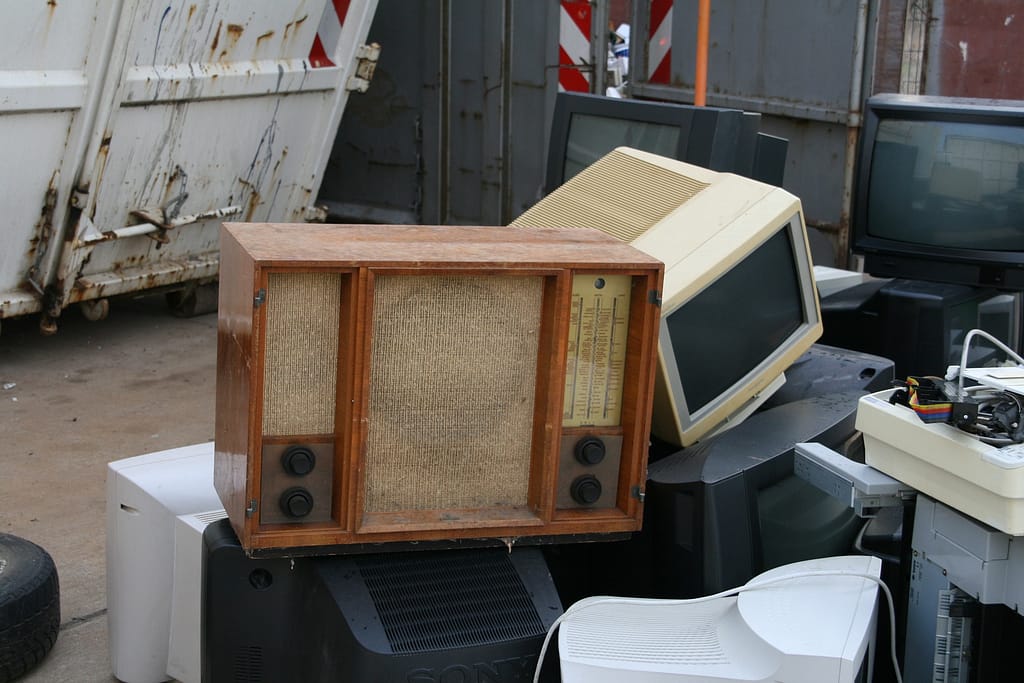Go Environment-friendly: Reliable and Secure Computer Recycling Options
Go Environment-friendly: Reliable and Secure Computer Recycling Options
Blog Article
Sustainable IT Solutions: Trustworthy Computer Recycling Provider
As technology remains to advance at a fast rate, the concern of electronic waste, or e-waste, has actually ended up being a pressing problem for both people and organizations alike. The incorrect disposal of computer systems and other electronic devices not only adds to ecological destruction, yet also presents significant dangers to human health and wellness. In light of this, the demand for trustworthy computer reusing services has actually never ever been even more paramount. In this discussion, we will check out the environmental effect of e-waste, the benefits of responsible computer recycling, how to pick a credible recycling solution, the recycling process for computers and electronic devices, and the role of federal government guidelines in e-waste administration. Join us as we reveal the lasting IT services that can aid us browse the intricacies of electronic waste in a reliable and liable way.
The Environmental Impact of E-Waste
The incorrect disposal of electronic waste, generally called e-waste, has substantial ecological implications. E-waste refers to discarded electronic devices such as tvs, computers, and smart devices (computer recycling). These gadgets contain unsafe products such as lead, mercury, cadmium, and brominated flame retardants, which can be damaging to both human health and the environment if not properly handled
When e-waste is incorrectly taken care of, it often ends up in land fills or is blazed, releasing harmful compounds into the soil, water, and air. The release of these unsafe materials can pollute groundwater, contaminate the air, and contribute to dirt degradation, presenting serious health dangers to neighboring areas and communities.
In addition, the improper disposal of e-waste likewise adds to the depletion of all-natural sources. computer recycling. If properly reused, many electronic gadgets have useful metals like gold, silver, and copper that can be recouped and recycled. When e-waste is not recycled, these useful resources are shed, and the need for brand-new raw products rises, leading to increased mining tasks and additional ecological destruction.
To reduce the ecological impact of e-waste, appropriate recycling and disposal techniques should be utilized. This consists of the accountable collection, dismantling, and recycling of electronic devices to recover beneficial products and make sure the secure management of hazardous compounds. Carrying out reliable e-waste monitoring practices is critical to secure the atmosphere, conserve sources, and promote a sustainable future.

Advantages of Accountable Computer System Recycling
Effectively recycling computer systems uses a multitude of benefits, including ecological preservation and source preservation. Responsible computer recycling not just helps stop digital waste from ending up in land fills, yet it likewise reduces the requirement for raw products and energy in the production of brand-new devices.
Among one of the most substantial advantages of accountable computer recycling is the preservation of the atmosphere. When electronic waste is incorrectly gotten rid of, it can launch harmful materials such as lead, mercury, and cadmium into the dirt and water, positioning a hazard to communities and human wellness. By recycling computers, these harmful materials can be securely removed and taken care of, minimizing the threat of contamination.
An additional benefit is source conservation. Computer systems include valuable materials like gold, light weight aluminum, copper, and silver, which can be recovered and reused through recycling processes. By removing and reusing these materials, the need for mining brand-new resources is decreased, preserving natural sources and reducing the ecological influence of resource removal.
Furthermore, accountable computer reusing aids to reduce power intake. Production brand-new computer systems needs a substantial amount of energy, from the extraction of resources to the assembly process. By recycling computers and recycling their elements, the energy-intensive production procedure can be prevented, leading to a decrease in greenhouse gas discharges and a much more lasting use of energy resources.
How to Choose a Trustworthy Computer System Recycling Service
When selecting a computer system recycling service, it is essential to think about a couple of vital aspects to make certain that you pick a trustworthy and dependable supplier. Data security is an important issue when reusing computer systems, as delicate information kept on old devices can be vulnerable to burglary or misuse. By taking into consideration these elements, you can pick a computer reusing solution that is moral, trustworthy, and eco responsible.
The Recycling Process for Computers and Electronic Tools
To make sure accountable disposal and decrease ecological impact, comprehending the recycling procedure for computer systems and digital tools is important when choosing a reliable recycling service. The recycling procedure for these gadgets typically includes several phases.
To start with, the devices are accumulated from people, services, or drop-off points. This collection procedure might entail transport logistics and secure managing to secure the delicate information had within the devices. Once collected, the devices are arranged based on their kind, such as mobile phones, desktops, or laptops.
After arranging, the tools undergo a comprehensive data destruction process to make certain that any type of individual or sensitive info is permanently erased. This step is vital to safeguard the privacy and security of people and companies. Data destruction methods might include cleaning, degaussing, or physical destruction of the storage space media.
Next, the gadgets are disassembled into their private elements. This enables the separation of various products, such as plastics, metals, and motherboard. These materials are then sent to specialized reusing centers for additional handling.
The recycling facilities utilize different techniques to draw out important materials from the electronic waste. These materials can be recycled or repurposed in the production of brand-new items. The remaining waste is taken care of in an environmentally responsible way, adhering to governing standards.
The Role of Federal Government Rules in E-Waste Management
Government guidelines play a vital role in the efficient management of e-waste. With the continual growth of the electronics market and the raising worry for ecological sustainability, the demand for proper disposal and recycling of electronic waste has come to be a lot more apparent. Federal government regulations help to guarantee that e-waste is handled in a liable and sustainable fashion.
Among the main roles of government regulations is to set standards and standards for e-waste administration. These policies define the appropriate approaches for collection, transport, and recycling of electronic waste. By developing these criteria, federal governments can ensure that e-waste is managed in a way that decreases its effect on the environment and human health.
Federal government policies likewise play a vital role in enforcing the correct disposal of digital waste. They call for stores and manufacturers to take responsibility for the items they market and create. This consists of carrying out take-back programs, where suppliers are accountable for accumulating and recycling electronic waste from consumers. These policies help to move the problem of e-waste monitoring address from the specific customer to the industry, guaranteeing that digital waste is managed in a more lasting fashion.

Final Thought
To conclude, it is important to take into consideration the ecological effect of e-waste and choose a credible computer system recycling service to responsibly get rid of electronic devices. By adhering to government regulations and participating in proper reusing processes, we can reduce the adverse results of e-waste on the environment and promote a much more sustainable future.
In this discussion, we will discover the environmental impact of e-waste, the advantages of responsible computer recycling, how to pick a reliable recycling solution, the reusing procedure for computer systems and electronic tools, and the duty of federal government regulations in e-waste administration. Source Computer systems include valuable materials like gold, light weight aluminum, silver, and copper, which can be recuperated and reused with reusing procedures.Moreover, accountable computer system recycling assists to minimize energy intake. Data safety is a critical concern when recycling computer systems, as delicate details stored on old tools can be vulnerable to theft or abuse. By thinking about these variables, you can select a computer reusing service that is moral, dependable, and eco accountable.
Report this page